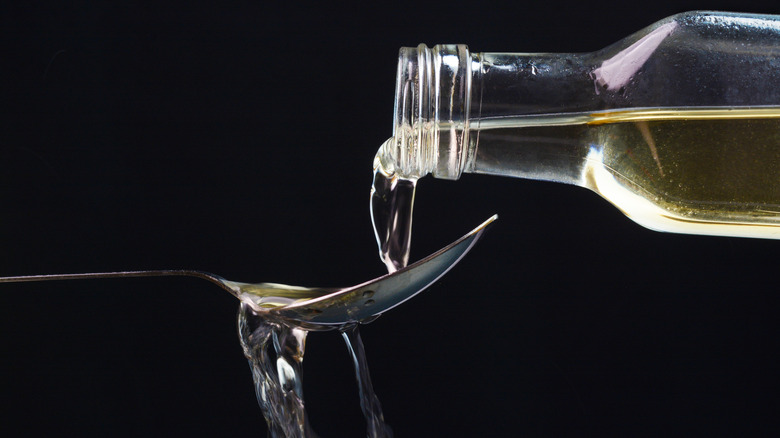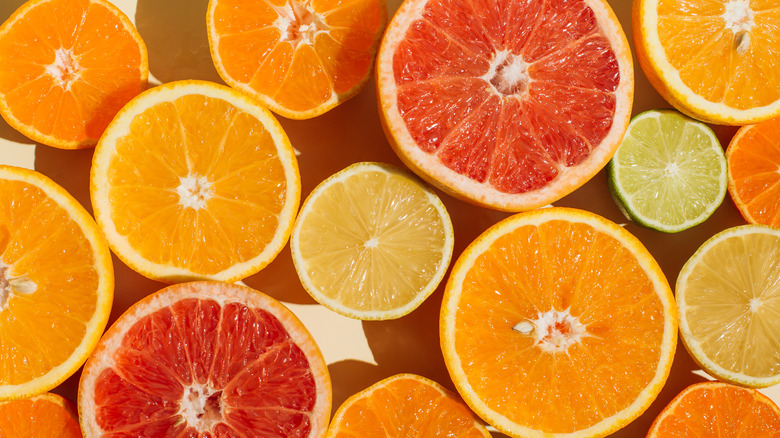The White Wine Substitute For Cooking That's Already In Your Pantry
Tons of recipes call for a splash of white wine to add a distinct flavor and a nuanced taste to a dish. White wine can often act as a secret ingredient in soups and stews, or when deglazing a pan to pick up all the flavorful browned bits that stick to the bottom. Wine can even become the backbone of some recipes like in a white wine and butter sauce to top pasta, fish, or chicken.
However, wine is not something everyone keeps in their home pantry, so you can find yourself in a pinch when a recipe calls for it. Some people choose not to drink and don't keep alcohol at home, some people who simply don't drink much don't find it a reasonable investment to buy a bottle or box of wine just to use for a recipe, and others might not know enough about wine to partake.
Whatever your reasoning, there are a few replacements for white wine in a recipe. Vinegar is a surprising secret ingredient that can replace wine in your cooking, but there are a few other options available to you too.
Substitute vinegar for white wine in a recipe
Depending on the recipe you are making, there are multiple options for white wine substitutes in your cooking.
Vinegar is one of the best replacements for white wine in a recipe because it contains similar tangy and sweet flavors found in wine. Many vinegars are actually made from wine, such as white wine vinegar, red wine vinegar, sherry vinegar, and rice wine vinegar, so many of the same flavor profiles are built right in. Since vinegar is much more sour than wine, it is recommended that you cut 1/2 cup of vinegar with 1/2 cup of water per every cup of wine called for in a recipe.
It is important to consider what vinegar you are working with before subbing it into a recipe, as some varieties can drastically change the color and flavor of the final dish. Many of the aforementioned vinegars are neutral enough to avoid that issue. Also avoid using white distilled vinegar, which is too acidic for this purpose.
Other substitutes for white wine
In a similar vein to the tangy and sweet flavors of vinegar, juice from citrus fruits such as lemons could also make an appropriate substitute for white wine in a recipe. Much like cooking with vinegar, citrus juices should be cut with water, this time in a ratio of 1/4 cup of juice with 3/4 cup of water per cup of white wine to avoid making the dish too sour.
Broth is another great substitute for cooking because it adds a rich, savory flavor to the final dish, and for this swap, you can use a simple one-to-one ratio of broth to wine. Chicken or vegetable broth is recommended because of their light color, and you can also add a dash of vinegar in with the broth to lend those tangy flavors absent in the broth.
Since wine is made out of grapes, white grape juice can be an appropriate substitute although it can make the final product sweeter, so cut the juice with water in a similar tattoo to using vinegar, cup juice to 1/2 cup water, and you can also add a splash of vinegar here as well.
If all else fails and you have none of these substitutes are in your pantry, you can always just use water to replace the liquid volume.


